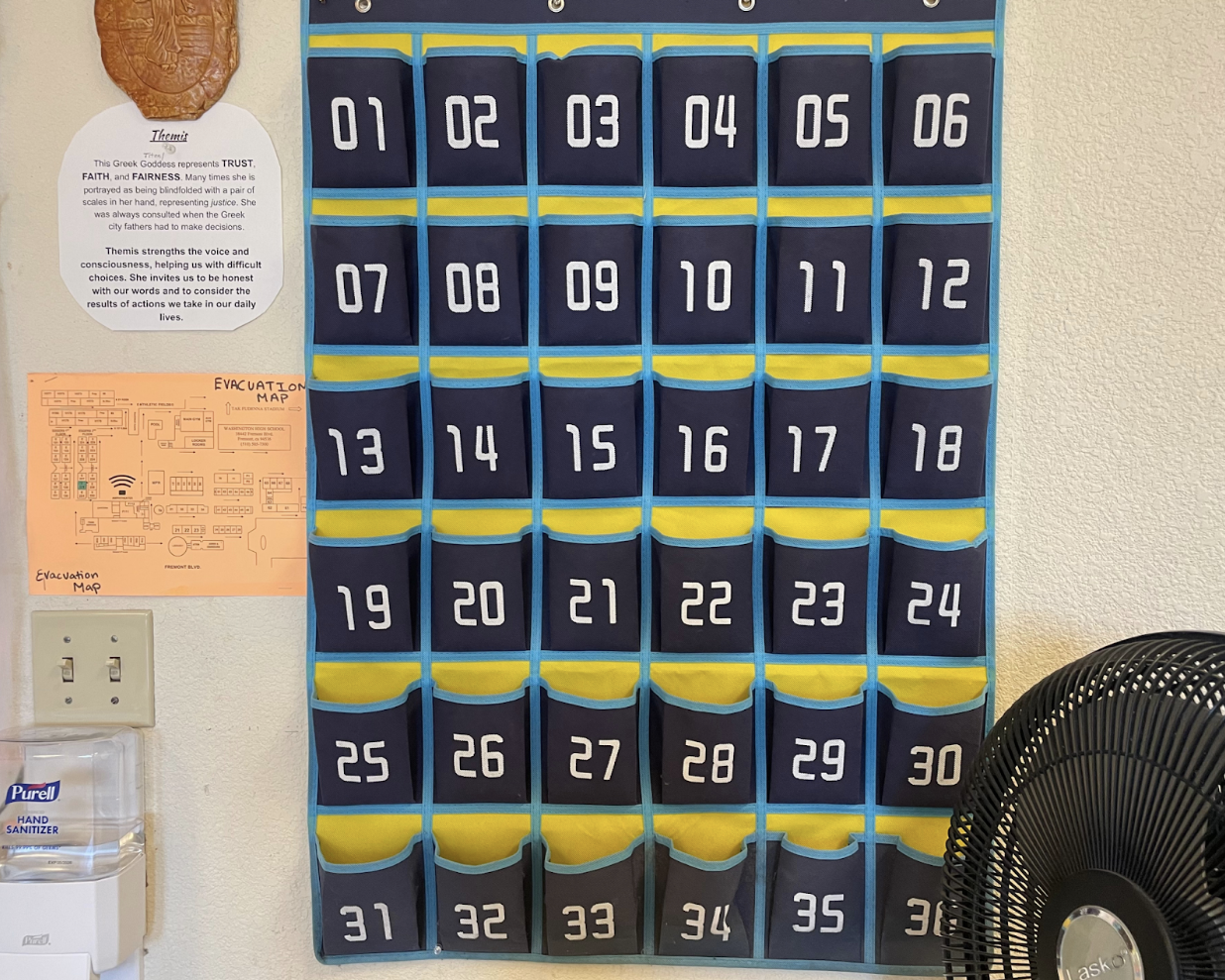Image from author. Top: A phone pouch in Ms. B’s room.
In 2019, Governor Gavin Newsom initiated the first part of a major new policy regulating the presence of cell phones at schools in California. He revised it again in August of 2024, giving schools more authority over student phone use. This law requires schools to pass rules regarding phones by July 1, 2026 and update their policies every five years. Here at Washington, students and teachers have different takes on this policy and how it will be implemented.
Vaishvi Chauhan, a junior at Washington, says she uses her phone in almost every class to do some work, make her flextime appointments, or send texts to family. She said, “I would feel uncomfortable if there was a law prohibiting my phone use. I think my phone is an important part of my life and school.” However, she also recognizes that this law might be the only available step considering the extremity of the phone problem.
From a teacher perspective, Economics and U.S. History teacher Mr. Block says that it is his job to ensure he provides a quality education and that includes regulating phone use. His typical policy is to allow students to use their phones for the first four minutes of class to send a final text message. After these four minutes, he expects students to pay attention to the material being taught. Mr. Block has noted that reading comprehension skills are much worse after the pandemic, and attributes a lot of it to TikTok culture on phones. While he agrees that something needs to be done about the phones, Mr. Block also says, “When teachers become cell phone monitors it takes away from their own teaching because their focus is diverted.”
While Mr. Block has more relaxed rules about phones, Mr. Hagmann requires students to put their phones in a phone pouch every morning. He says he notices kids getting anxious about not having their phones with them and making excuses to get them back. Mr. Hagmann thinks the rule could be taken a step further; he said, “While this isn’t a fun solution, I think phones shouldn’t be in the equation at all.”
Students and teachers at Washington have come to a consensus that the phone problem needs solving, although many think that introducing a law to do so isn’t the optimal solution. Regardless, there are certain concerns that follow this law: How will it be enforced? Anwita Gandesiri said, “I’m curious about what they’ll do if students don’t follow the rules. Like, will they get suspended, or will there be fines? It’s kind of unclear how strict they’ll be.”
Another major concern surrounding the new law is safety. In the case of a school emergency, a phone can be a student’s first way to reach out for help. Mr. Block said that the safety of the student is the school’s responsibility once the student is on campus. “I think Washington takes all the safety precautions necessary, so there should be no reason for a student to [have to] step in.”
There is no doubt that phones are an integral part of every student’s lives. While some may be able to part with their phones for six hours a day, that may be an impossible task for others. The harshness of this law will vary from school to school, but phones may definitely become less relevant to learning starting 2026. This could be a step in the right direction for students at Washington following the dip in reading comprehension and writing after the pandemic.
Avni Mishra is a senior at Washington High School. She grew up in Fremont, California. This is her second year at the paper and she is will be co-editor-in-chief. She is also part of Whs DECA and has been doing Indian Semi-Classical dance for the past eight years. She hopes to become a print journalist in the future!


